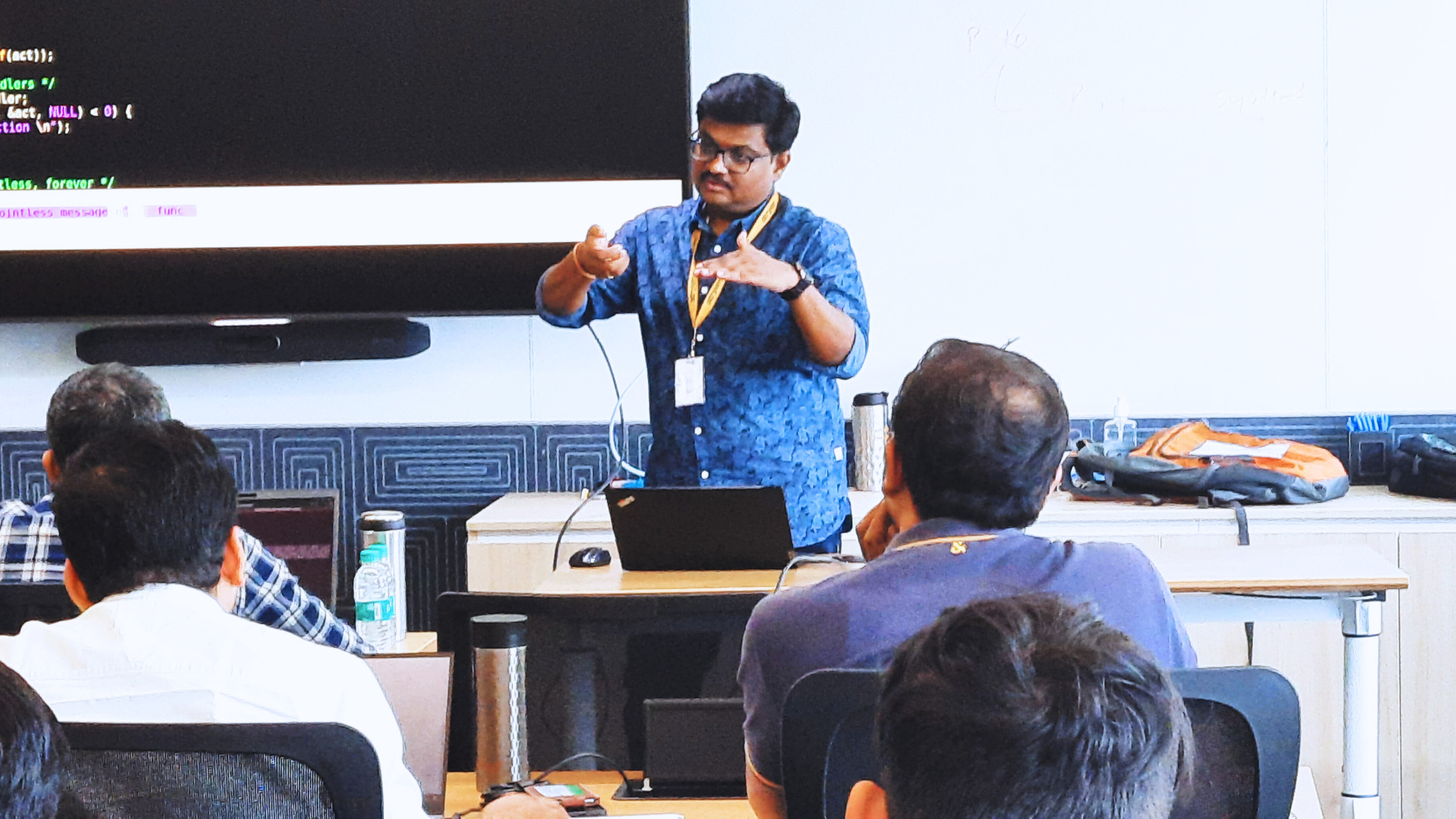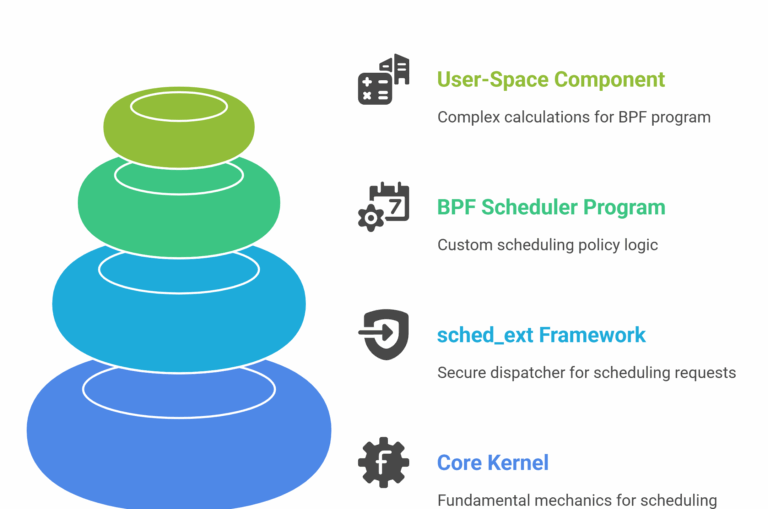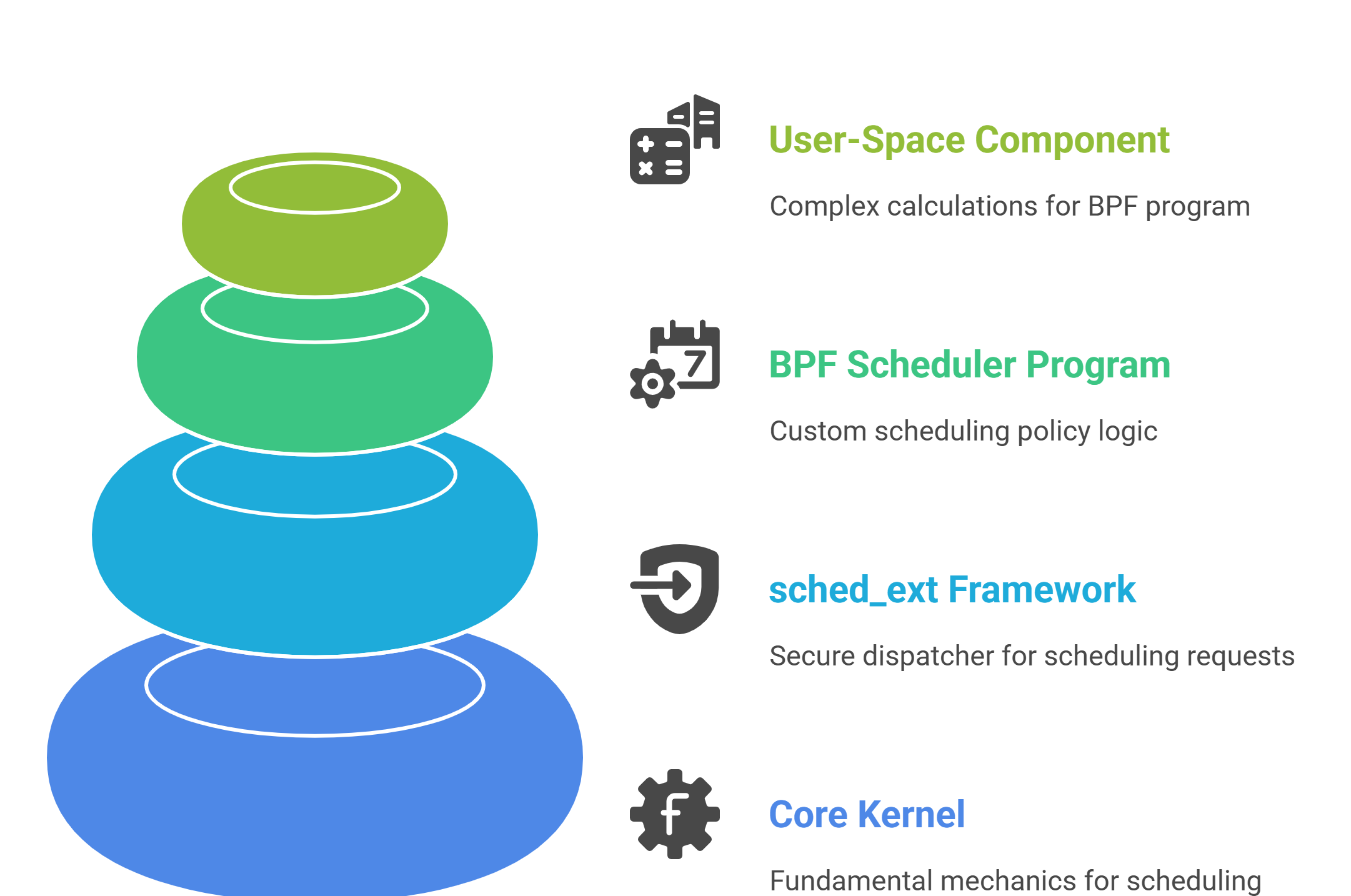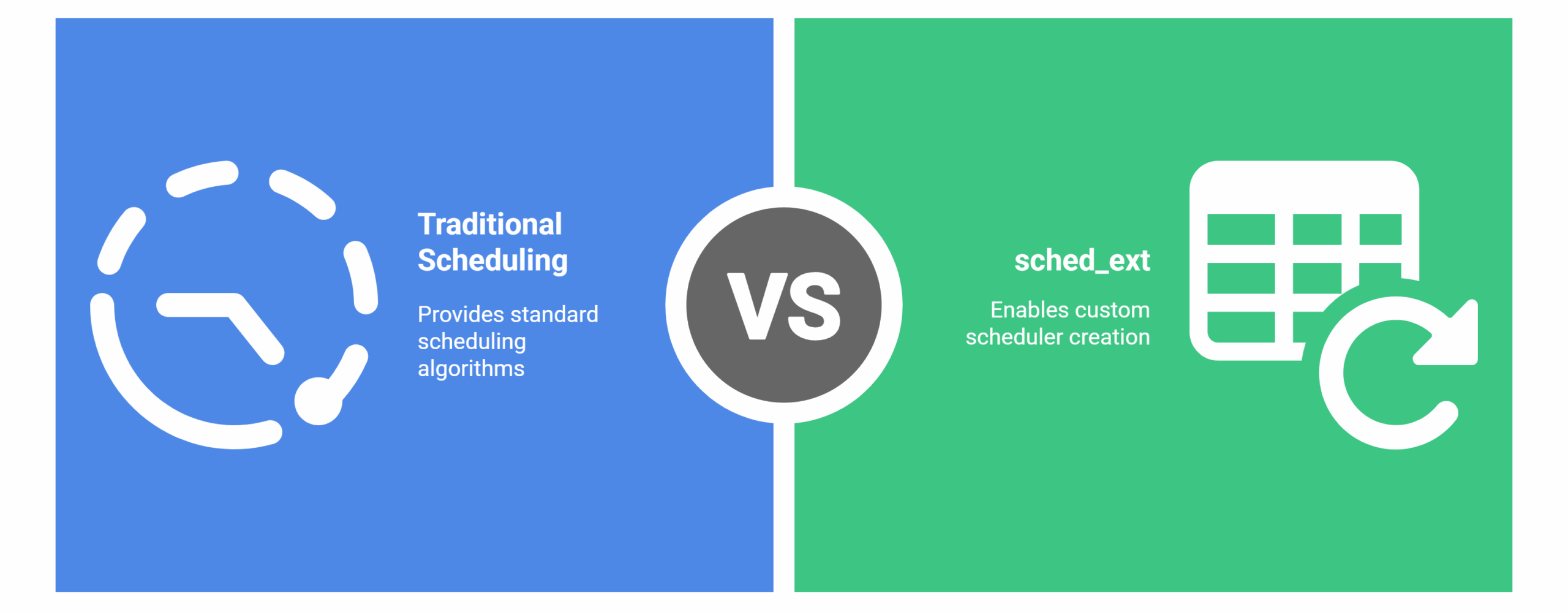
Softdel signs TECH VEDA for corporate training on Embedded Linux
Softdel signs TECH VEDA for delivering corporate training program on Embedded Linux. Softdel becomes our 49th client.
The Linux kernel’s traditional schedulers (CFS, EEVDF) are masterpieces of general-purpose engineering. However, their “one-size-fits-all” nature creates compromises, forcing trade-offs between throughput, latency, and power efficiency. This model couldn’t be optimal for specialized workloads like data centers, gaming, or mobile devices. Historically, creating new schedulers was a high-risk, slow process, which stifled innovation. sched_ext was created to break this bottleneck.
sched_ext is not a scheduler; it’s a framework that securely connects custom BPF programs to the core kernel. Its architecture consists of four distinct layers that separate responsibilities cleanly.

The conversation is defined by the sched_ext_ops struct, a set of callbacks the BPF program implements. Key hooks include:
A BPF scheduler hands tasks to the kernel via a Dispatch Queue (DSQ). Think of a DSQ as a standardized mailbox. The BPF program can manage tasks using any complex data structure it wants, but when it’s time to run a task, it places it in a DSQ. The kernel only picks up work from these mailboxes. This brilliantly decouples the scheduler’s internal complexity from the kernel’s execution mechanism.
The biggest hurdle for kernel development is the risk of a single bug causing a system-wide crash. sched_ext mitigates this with a two-pronged safety model:
Let’s consider a practical example of the hybrid kernel/user-space model: a scheduler for a large-scale video transcoding service.
This framework unlocks the ability to build highly specialized schedulers that were previously impractical:
For decades, the Linux kernel relied on monolithic, general-purpose CPU schedulers like CFS and EEVDF. While powerful, their “one-size-fits-all” approach created a ceiling on performance for specialized workloads in areas like data centers, gaming, and mobile computing, where the trade-offs between throughput, latency, and power are unique. Developing new in-kernel schedulers was a high-risk, slow process that stifled innovation.
sched_ext fundamentally changes this paradigm. Introduced in Linux 6.12, it is not a new scheduler but an extensible framework that allows developers to write and deploy custom scheduling policies as BPF programs, which can be loaded and swapped at runtime without a reboot.
The architecture cleanly separates duties into layers: the core kernel provides low-level mechanics, the sched_ext framework acts as a secure bridge, and the BPF program implements pure scheduling policy. Communication occurs through a well-defined API (sched_ext_ops) and a “mailbox” system called Dispatch Queues (DSQs), which decouples the scheduler’s internal logic from the kernel.
Crucially, sched_ext is built for safety. The BPF verifier statically proves a scheduler can’t crash the kernel, while a runtime watchdog acts as a fail-safe, automatically reverting to the default scheduler if the custom policy misbehaves. For algorithms too complex for BPF, a hybrid user-space model allows for heavyweight computations, opening the door to schedulers written in languages like Rust or Go.
This framework democratizes scheduler development, enabling a new ecosystem of highly-specialized schedulers tailored for specific outcomes—from ensuring microsecond-level latency for financial services to maximizing battery life on mobile devices. sched_ext marks a pivotal shift for Linux from a monolithic design to a flexible, safe, and workload-aware platform for the future of systems performance.

Softdel signs TECH VEDA for delivering corporate training program on Embedded Linux. Softdel becomes our 49th client.

This article provides a deep dive into the major scheduler classes, their unique design goals, and the management utilities powering the system.

sched_ext is not a scheduler; it’s a framework that securely connects custom BPF programs to the core kernel. Its architecture consists of four distinct layers that separate responsibilities cleanly.

For decades, general-purpose schedulers like CFS and EEVDF, powered everything from phones to supercomputers. But with complex hardware and specialized software, the “one-size-fits-all” scheduling model began to crack. This tension set the stage for sched_ext.